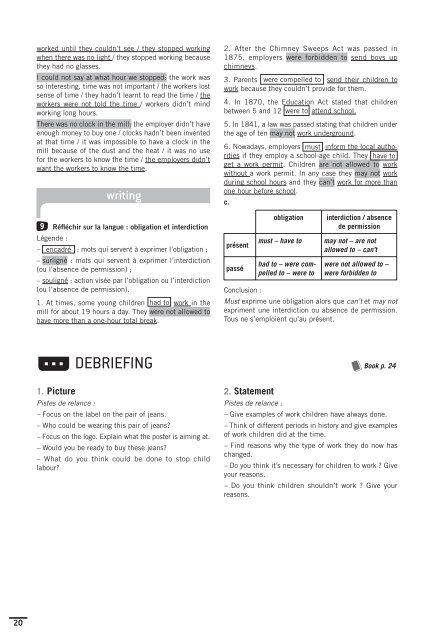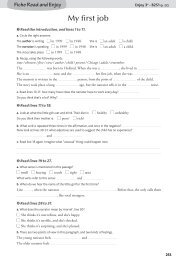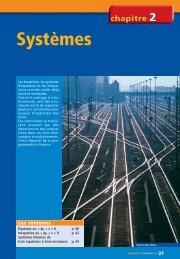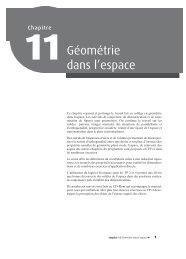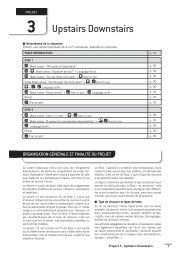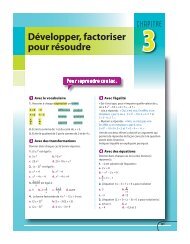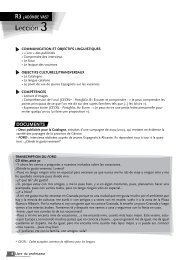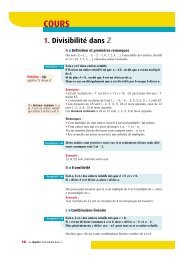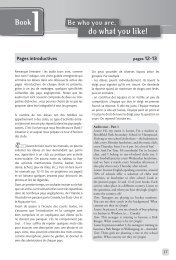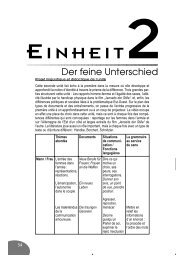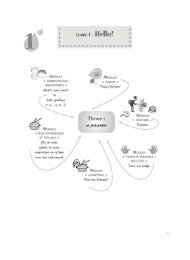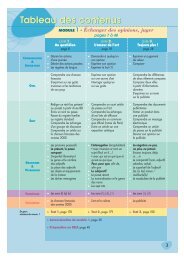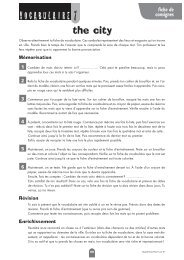Children at work - Didier
Children at work - Didier
Children at work - Didier
Create successful ePaper yourself
Turn your PDF publications into a flip-book with our unique Google optimized e-Paper software.
<strong>work</strong>ed until they couldn’t see / they stopped <strong>work</strong>ing<br />
when there was no light / they stopped <strong>work</strong>ing because<br />
they had no glasses.<br />
I could not say <strong>at</strong> wh<strong>at</strong> hour we stopped: the <strong>work</strong> was<br />
so interesting, time was not important / the <strong>work</strong>ers lost<br />
sense of time / they hadn’t learnt to read the time / the<br />
<strong>work</strong>ers were not told the time / <strong>work</strong>ers didn’t mind<br />
<strong>work</strong>ing long hours.<br />
There was no clock in the mill: the employer didn’t have<br />
enough money to buy one / clocks hadn’t been invented<br />
<strong>at</strong> th<strong>at</strong> time / it was impossible to have a clock in the<br />
mill because of the dust and the he<strong>at</strong> / it was no use<br />
for the <strong>work</strong>ers to know the time / the employers didn’t<br />
want the <strong>work</strong>ers to know the time.<br />
writing<br />
9 Réfléchir sur la langue : oblig<strong>at</strong>ion et interdiction<br />
Légende :<br />
– encadré : mots qui servent à exprimer l’oblig<strong>at</strong>ion ;<br />
– surligné : mots qui servent à exprimer l’interdiction<br />
(ou l’absence de permission) ;<br />
– souligné : action visée par l’oblig<strong>at</strong>ion ou l’interdiction<br />
(ou l’absence de permission).<br />
1. At times, some young children had to <strong>work</strong> in the<br />
mill for about 19 hours a day. They were not allowed to<br />
have more than a one-hour total break.<br />
2. After the Chimney Sweeps Act was passed in<br />
1875, employers were forbidden to send boys up<br />
chimneys.<br />
3. Parents were compelled to send their children to<br />
<strong>work</strong> because they couldn’t provide for them.<br />
4. In 1870, the Educ<strong>at</strong>ion Act st<strong>at</strong>ed th<strong>at</strong> children<br />
between 5 and 12 were to <strong>at</strong>tend school.<br />
5. In 1841, a law was passed st<strong>at</strong>ing th<strong>at</strong> children under<br />
the age of ten may not <strong>work</strong> underground.<br />
6. Nowadays, employers must inform the local authorities<br />
if they employ a school-age child. They have to<br />
get a <strong>work</strong> permit. <strong>Children</strong> are not allowed to <strong>work</strong><br />
without a <strong>work</strong> permit. In any case they may not <strong>work</strong><br />
during school hours and they can’t <strong>work</strong> for more than<br />
one hour before school.<br />
c.<br />
présent<br />
passé<br />
oblig<strong>at</strong>ion<br />
must – have to<br />
had to – were compelled<br />
to – were to<br />
interdiction / absence<br />
de permission<br />
may not – are not<br />
allowed to – can’t<br />
were not allowed to –<br />
were forbidden to<br />
Conclusion :<br />
Must exprime une oblig<strong>at</strong>ion alors que can’t et may not<br />
expriment une interdiction ou absence de permission.<br />
Tous ne s’emploient qu’au présent.<br />
DEBRIEFING Book p. 24<br />
1. Picture<br />
Pistes de relance :<br />
– Focus on the label on the pair of jeans.<br />
– Who could be wearing this pair of jeans?<br />
– Focus on the logo. Explain wh<strong>at</strong> the poster is aiming <strong>at</strong>.<br />
– Would you be ready to buy these jeans?<br />
– Wh<strong>at</strong> do you think could be done to stop child<br />
labour?<br />
2. St<strong>at</strong>ement<br />
Pistes de relance :<br />
– Give examples of <strong>work</strong> children have always done.<br />
– Think of different periods in history and give examples<br />
of <strong>work</strong> children did <strong>at</strong> the time.<br />
– Find reasons why the type of <strong>work</strong> they do now has<br />
changed.<br />
– Do you think it’s necessary for children to <strong>work</strong> ? Give<br />
your reasons.<br />
– Do you think children shouldn’t <strong>work</strong> ? Give your<br />
reasons.<br />
20


